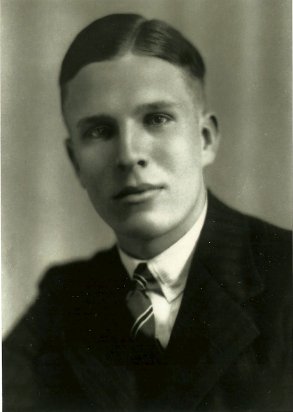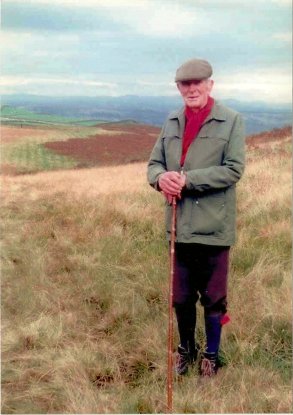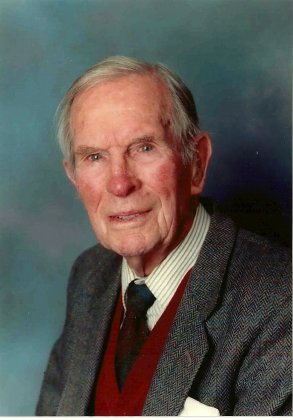Martin Poynting Byers, OBE (FN 29-33).
Robin Byers has compiled the following:
“Martin Byers died on March 29th 2012 aged 97. He was born in Wilmslow, Cheshire, the youngest of three boys, all of whom were educated at St Bees. One of his main achievements was to win the ¼ mile, the ½ mile and the mile in 1932, a feat he repeated in 1933. He left St Bees in that year at the time of the great depression, a period nationally when jobs were difficult to find. He decided not to follow his father into the medical profession, opting instead for the opportunity to go out to Kenya to work on a farm located in what were then known as the White Highlands at 8,500 feet, just two miles south of the equator. This farm was owned by the family whose daughter, Rosemary Veasey, he would eventually marry in 1940. Whilst his accommodation was initially rather rudimentary in a round thatched-roof hut, he enjoyed the experience and the contrast with life in England. His farming duties varied from supervising the milking to harvesting, picking pyrethrum flowers for the production of anti-fly sprays, and swatting locusts.
He returned home for a two week visit to his parents by sea and this, with the outbreak of war, was to be the last time he would see them. In 1937 my father was offered the position of a labour officer in the colonial administration, initially in Kisumu on the shores of Lake Victoria. Meanwhile the Kenya Regiment was formed to provide officers and NCO’s for the enlarged battalions of the King’s African Rifles in case of war. At the time of his death he was the oldest living ex-member of the regiment by a considerable number of years. On the outbreak of war in 1939 he was called-up to join what became the 2nd/4th battalion of the King’s African Rifles and he then entered the Abyssinian campaign. In 1943, shortly after my birth, my father’s active service ended, with the rank of major, when he was recalled to return to important civil duties in the Labour Department to oversee conscription on the farms.
He was appointed a senior labour officer with provincial responsibilities for labour matters and in 1947 appointed PA to the Commissioner. In 1948 he was transferred by the colonial office to Uganda, becoming deputy labour commissioner in 1950. Then in 1958 he was appointed labour commissioner, a position he held through Uganda’s independence in 1962 until shortly before his departure and retirement in 1965. My father was a keen yachtsman, and also enjoyed squash, fishing, amateur dramatics, carpentry and ‘safaris’ around East Africa.
One real interest he had was as chairman of the Uganda Outward Bound Trust and member of the East African Committee 1958 -1964. For all his achievements he was awarded an O.B.E. in 1962.
On returning to Britain in 1965 he was appointed course organiser (Africa) at Farnham Castle at the Centre for International Briefing. In mid-1974 he retired with my mother to Worth Matravers in Dorset, where later that year she very sadly developed early signs of dementia, leading to their premature departure to Dormansland in Surrey to be closer to our family.
Following my mother’s move into a care-home, my father took-up beagling, which provided exercise and social activities that he continued to enjoy until just two years ago, when he found he could no longer climb a five-bar gate! He loved the theatre and concerts, and became involved with the local community. He was recognised for his genuine thoughtfulness and kindness towards others. He had an indomitable spirit, a wonderful serene nature, was always full of good humour and wisdom and never grew old in spirit. He was a gentle man and a true gentleman.”



